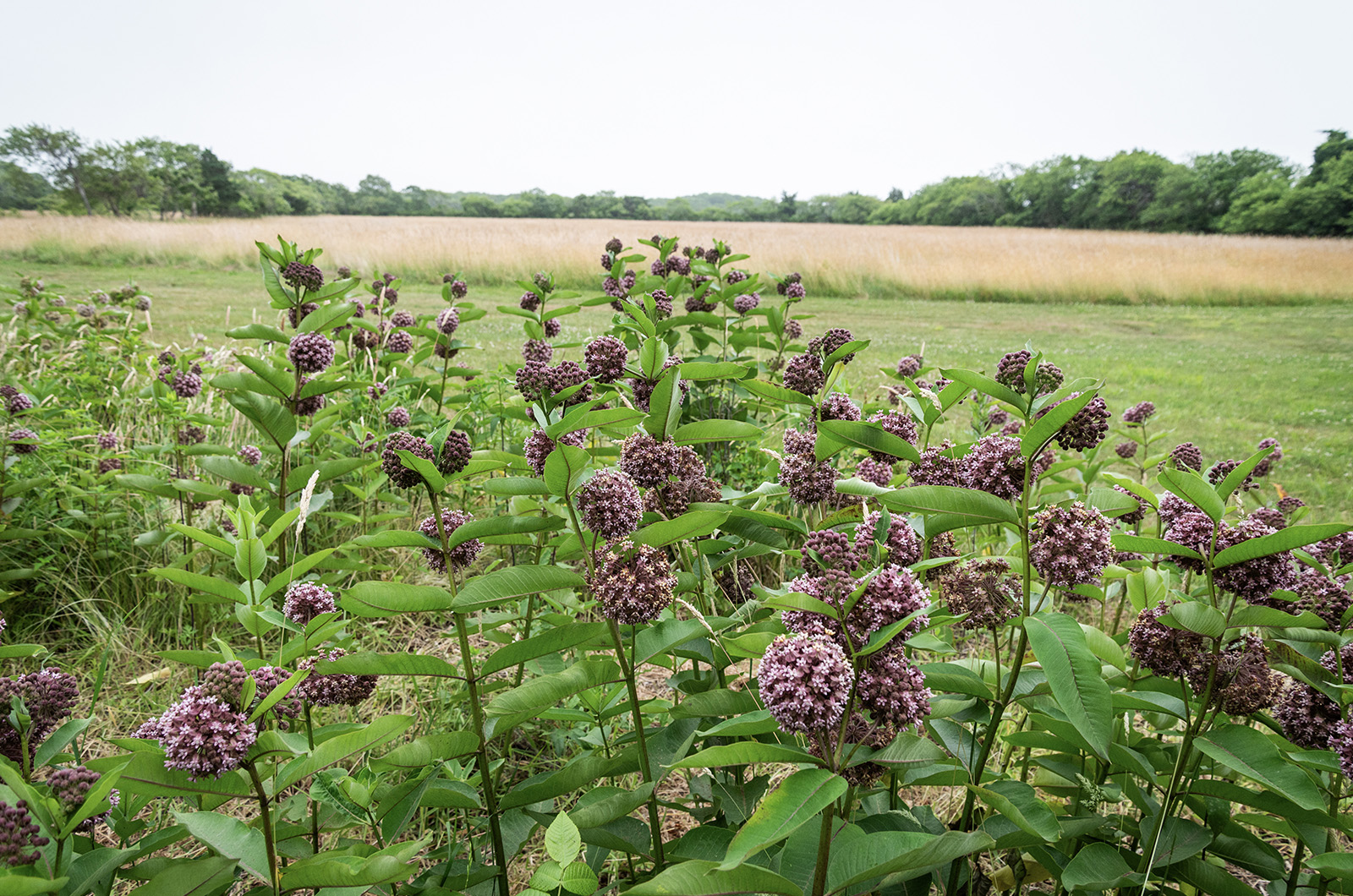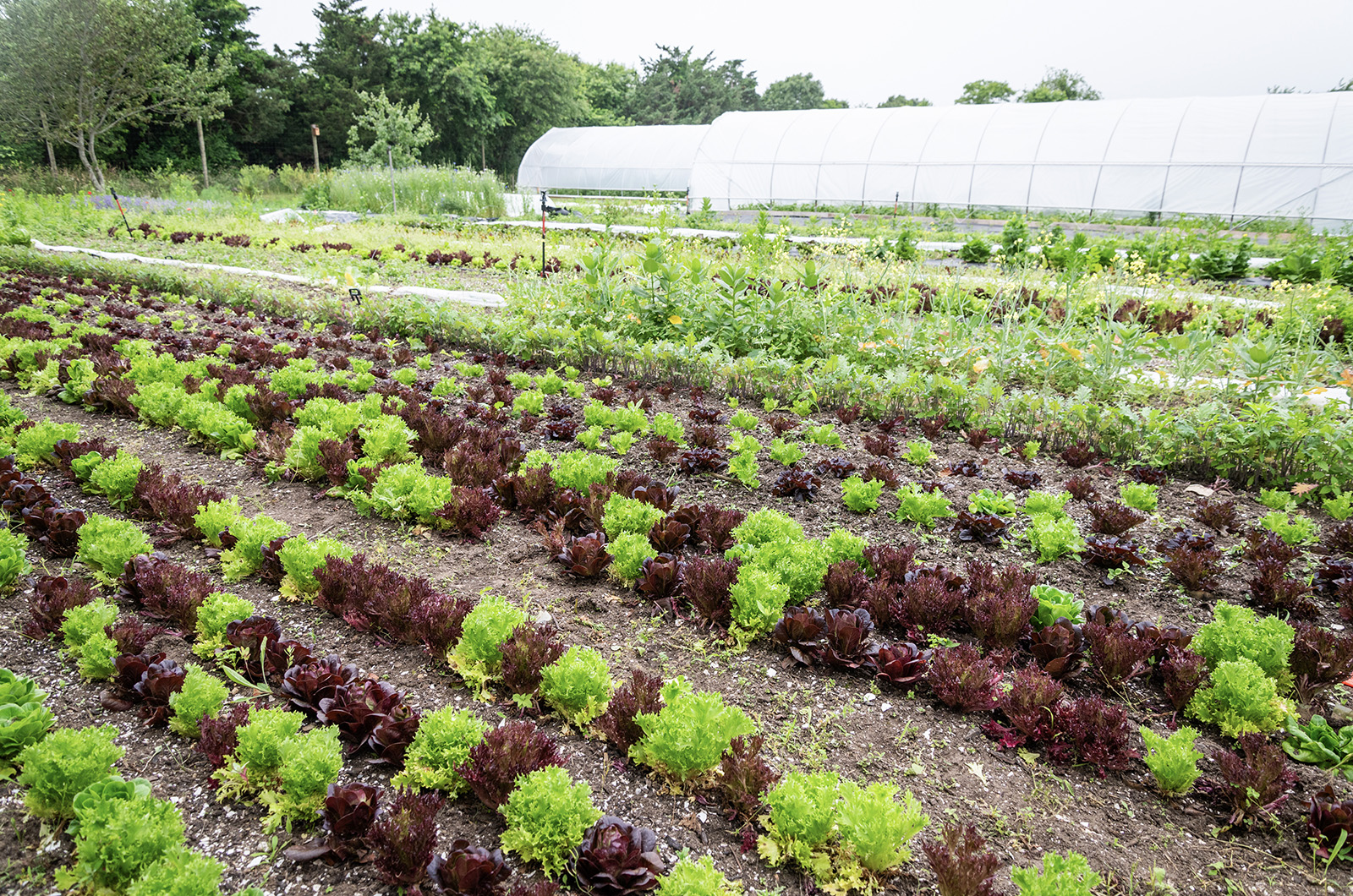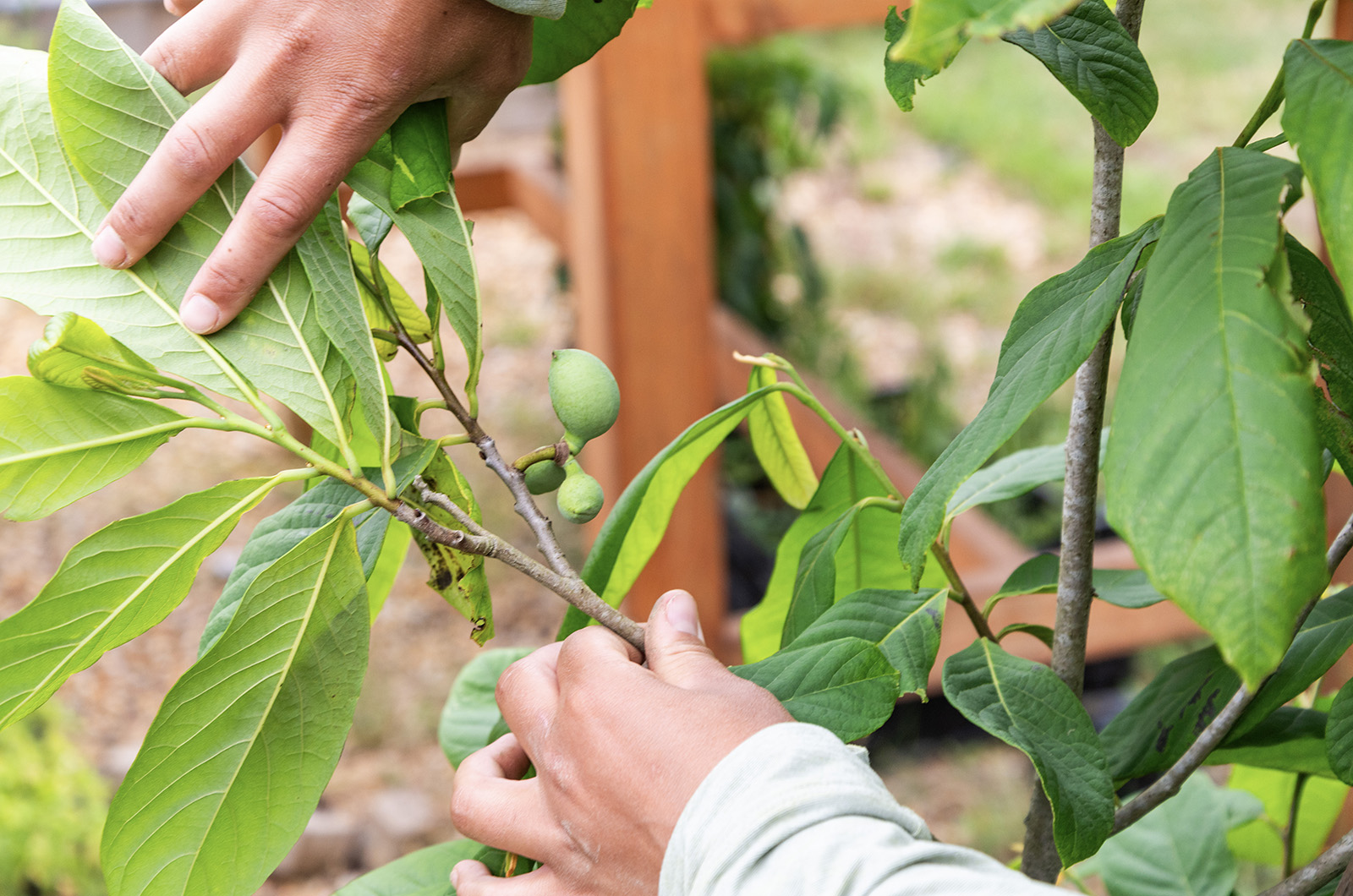It was one of those mild foggy days, when the misty ocean rises up into the air to envelope the whole Island in harbor-side cool, and the weather reminds one of lettuce: crisp and dewy fresh.
I was headed down Quenames Road in Chilmark, where neon pastures peak through a forest of scraggly oak and pine for a visit to Milkweed Farm, the little sandy fiefdom where Mallory Watts has recently begun to reap a yearly harvest.
“We are a small but mighty crew,” Ms. Watts said, after my arrival there, while giving me a tour of her acre-large farm, where lettuce and greens in rows of variegated green-and-purple are planted in dark soil flecked with bright shards of quahog shell.
When she began farming this land back in 2018, Ms. Watts said, things were not nearly so ordered. The site’s sandy soils required extensive compost to be made fertile, while a hastily constructed deer fence allowed “madness” to take hold in the fields.
Since those early days, though, things have stabilized. A more substantial fence was erected with the help of Allen Farm, the soil was steadily amended, and a series of hoop houses have been constructed with the help of a grant from the Agricultural Society.
Now, Ms. Watts said, the soil has been improved enough that they have been able to switch to a “no-till” model, a farming method with aims to limit soil disturbance in order to better preserve its structure and microbiota.
“I think the most important thing is that we’re all really trying to do what’s best for the soil,” she said.
Eco-friendly techniques, she said, align well with the goals of the owner of the 12-acre property on which Milkweed Farm sits, and for which Ms. Watts acts as property manager. Ms. Watts first came to the Vineyard as a personal assistant for the owner, she said, after deciding not to pursue a career in medicine.
“I quit my job at the doctor’s office and went to an urban agriculture program in Brooklyn,” she recalled, another farm based on a one-acre parcel. But though she was prepared in terms of scale, the Island environment presented very different challenges than those of Kings County.
“We didn’t have deer pressure in Brooklyn,” she said, nor did they have the rabbits who mercilessly chomp down fresh shoots and leaves in springtime and summer. Though the deer have largely abated since the new fortifications, she said, the battle with the rabbits remains ongoing.
“If they nibble a little it’s okay with me, as long as they don’t take it all,” she said.
Milkweed also has pest control assistance from some avian allies that make their home on the farm the Barn owls that devour any wayward rodents they can find trespassing there. Ms. Watts said they plan to install a second owl box this year, in the interest of bolstering their predatory ranks.
On the ground, meanwhile, insect netting and landscape fabric helps limit insects and weeds. These techniques of “integrated pest management,” Ms. Watts said, fit well with the ecological approach she takes in managing the rest of the property.
“On the periphery of the farm, a big focus of ours is removing invasives here and planting natives. That’s a big passion of the property owners,” she said.
Among the invasives she has found many of the usual suspects, with bittersweet, autumn olive and honeysuckle choking out native competition.
The presence of year-round work as a property manager helps mitigate the extreme seasonality that comes with operating a farm on the Vineyard, Ms. Watts said, but her business model as a farmer is always evolving.
“This year we pulled back a little bit on wholesale and have shifted towards retail,” she said, a shift enabled by her larger staff this year enabling them to invest more time in packaging, as well as a retail partnership with Grey Barn.
But even with a bigger staff, she said, there is always more to do, and always something not getting done.
The cool, misty atmosphere on the morning I visited gave opportunity to get one item off her list, to prune the tomatoes while the weather had yet to raise the hoop house to nigh-unbearable temperature.
“We’ve just been harvesting a ton lately, and it just sets us back,” she said and so, as I departed to return down-Island, Ms. Watts marched off to the hoop house to catch up on the pruning. Beside her, a flock of goldfinches flitted in a rain puddle which had pooled in field tarps, apparently enjoying the coolness as well.










Comments (1)
Comments
Comment policy »